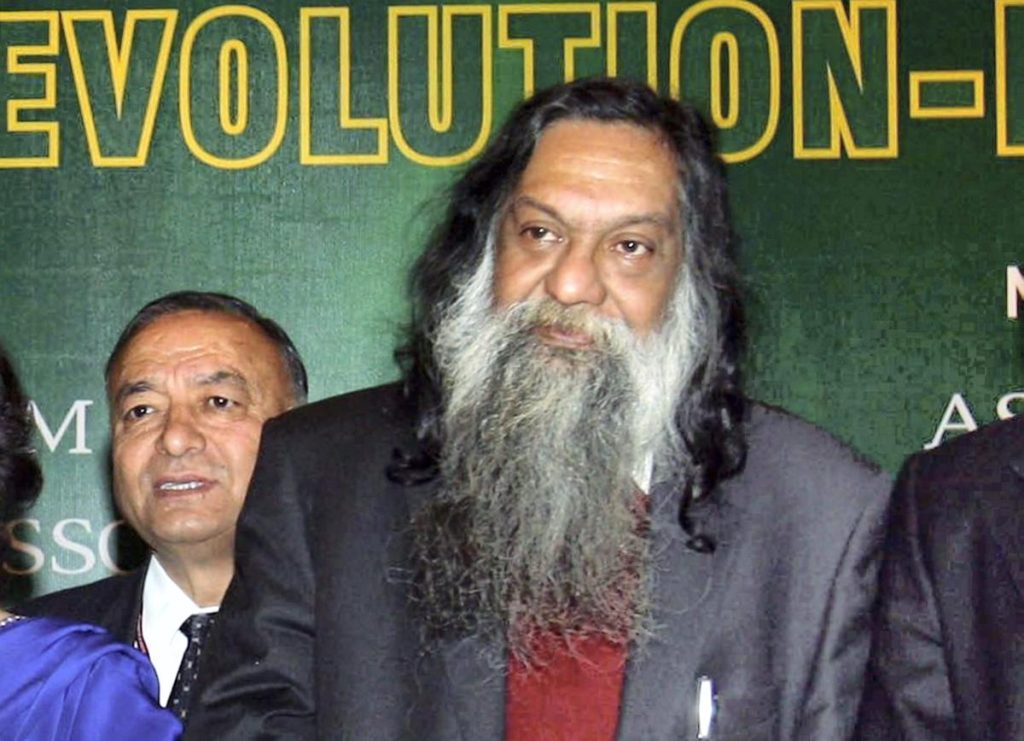Even Western financial outlets now warn of the beginning of the end of dollar dominance.…
Abhijit Sen: A champion of the excluded and exploited Mihir Shah

Abhijit Sen, who died on Monday at the age of 72, was one of India’s most distinguished development economists, teachers and policymakers. He joined the Jawaharlal Nehru University in 1985, where he remained a much-revered teacher, right until his retirement in 2015. Heartfelt tributes from his students and colleagues haven’t stopped pouring in. During 2004-2014 he was Member, Planning Commission, Government of India, the highest policy-making body of the country at the time. In the hours and words I need to do this in, it is not possible to do justice to a life so fully lived and so extremely rich in its contributions. But I will try!
It is 20 years, almost to the day, since the High-Level Committee on Long-Term Grain Policy chaired by Abhijit Sen submitted its report to the Vajpayee government. In his long and distinguished career, I reckon this report remains at the pinnacle of Abhijit’s many great accomplishments. One cannot help being struck by the enduring salience of this 2002 report, especially in the backdrop of the recent farmer agitations. Given rampant market failure and the multiple national goals of price support for farmers, price stability for producers and consumers, and affordable grain for consumers, the Committee recognised a key role for the government. But the Committee argued for many reforms, including greater diversification and decentralisation of public procurement to include a much larger number of crops and regions, without which the system benefits only a very small proportion of farmers. The Committee also was in favour of simplifying legal conditions on private trade by reviewing existing orders issued under the Essential Commodities Act. I would strongly urge both the government and farmers to carefully study this report, which could help end their long-standing impasse.
Abhijit was always a champion of the excluded and exploited. But he was never a fundamentalist. Indeed, quite the opposite, always teaching his students the power of contrarian positions, of understanding arguments on the other side, so that their own thinking would grow deeper. This openness, as well as his impeccable integrity and academic credentials, also meant that he was respected across the political spectrum, with seriously opposed dispensations all showing him due respect and depending on him for advice. I saw this first-hand in the Planning Commission, with the Prime Minister and so many Chief Ministers seeking his counsel and heeding it too!
In the larger community of researchers, Abhijit was the gold standard in the use of data. His command over the quagmire of government statistics is almost legendary. For all of us, he was the reference of the last resort, to make sure we were not putting a wrong foot forward!
Abhijit was a great believer in the principle of subsidiarity, that solutions to problems are best found closest to where they arise. He was, therefore, a powerful advocate of decentralised governance. This included a passionate commitment to greater autonomy for the States, as also the empowerment of Panchayati Raj Institutions. A great example of autonomy to the States is the Rashtriya Krishi Vikas Yojana (RKVY), which Abhijit conceptualised as Member, Planning Commission in 2007. It is hard to think of a scheme with a more innovative architecture than the RKVY, which sought to provide flexibility and autonomy to the States in planning and executing programmes, based on location-specific plans emanating from the districts.
Ecological challenges
Abhijit was keenly aware of the emerging ecological challenges facing the planet. Delivering the keynote address at a conference on India’s Soils in 2017, he lamented the “mechanical mining of the soil” and lowering of its organic carbon content, in the decades following the Green Revolution. Declaring the soil as a “public good”, he called for collective but location-appropriate action by farmers, scientists, civil society and the state to secure India’s soils and the future of Indian civilisation. In 2020, he became a Founding Member of the Steering Committee of the National Coalition for Natural Farming. Here again he advised us to shed any kind of fundamentalism, allowing a hundred flowers to bloom, as India embarked on its journey towards building agro-ecological alternatives to the chemical farming practised over the past 50 years.
The recent debate on freebies bemused him. He would point to the enduring role of the state in providing the basic needs of life, throughout the entire history of capitalism. He was also amazed that the fiercest critics of freebies appeared to simultaneously endorse the free-est freebie of them all: unconditional cash transfers, which he strenuously opposed because he saw in them a pretext for the state to absolve itself of its primary responsibility to provide water, health, education, sanitation and nutrition to all.
Abhijit Sen was a one-of-a-kind human being, the likes of whom I have never and I am sure will never meet. Utterly genial, humble and sweet-natured, yet searingly clear and deeply passionate in his commitment to a more just society, kind to a fault but so completely uncaring for his own well-being. You went too soon, my friend, but what an exhilarating ride it was!
(The writer was a fellow Member of the Planning Commission with Abhijit Sen from 2009 to 2014.)
(This article was originally published in The Hindu on August 30, 2022)
